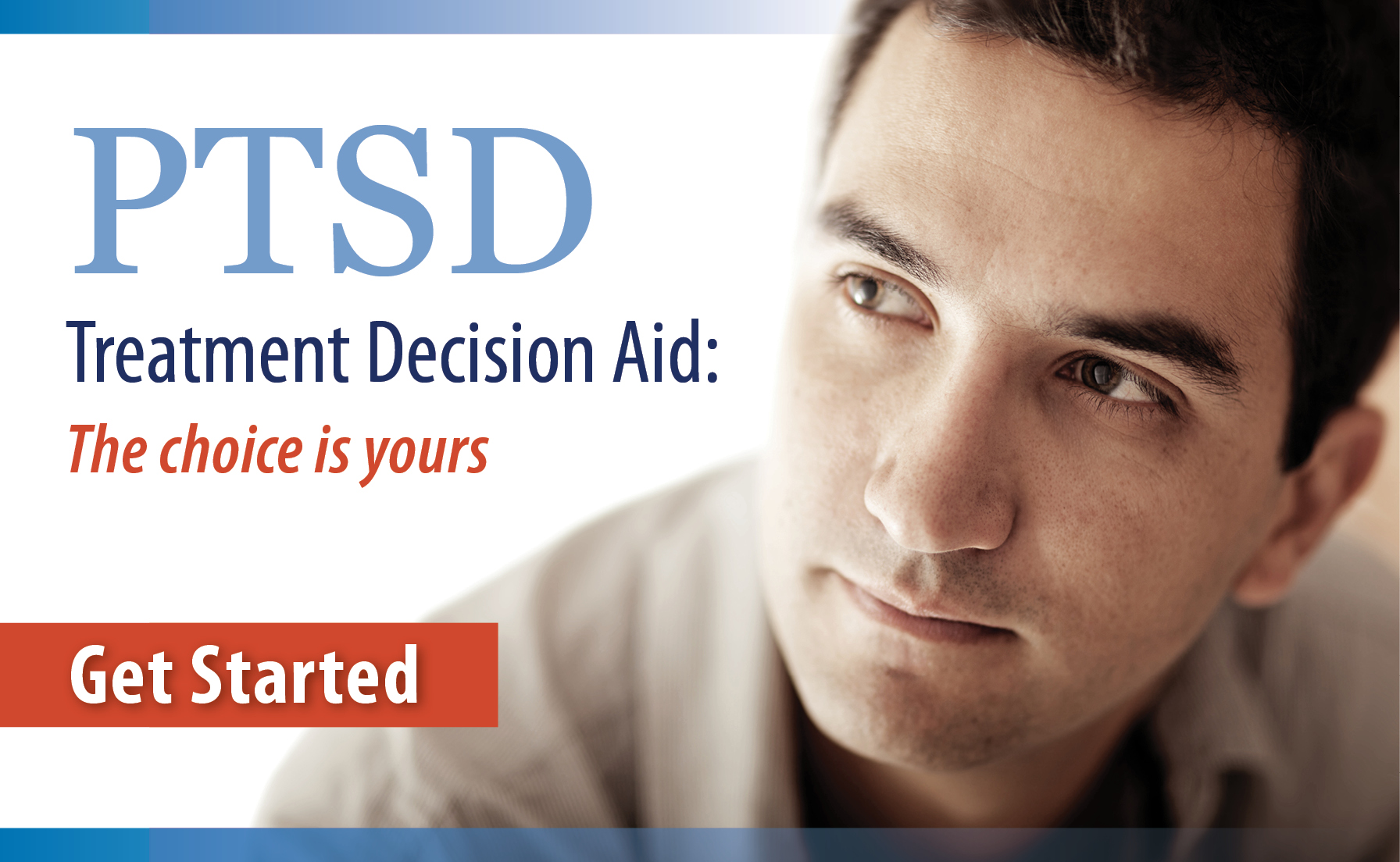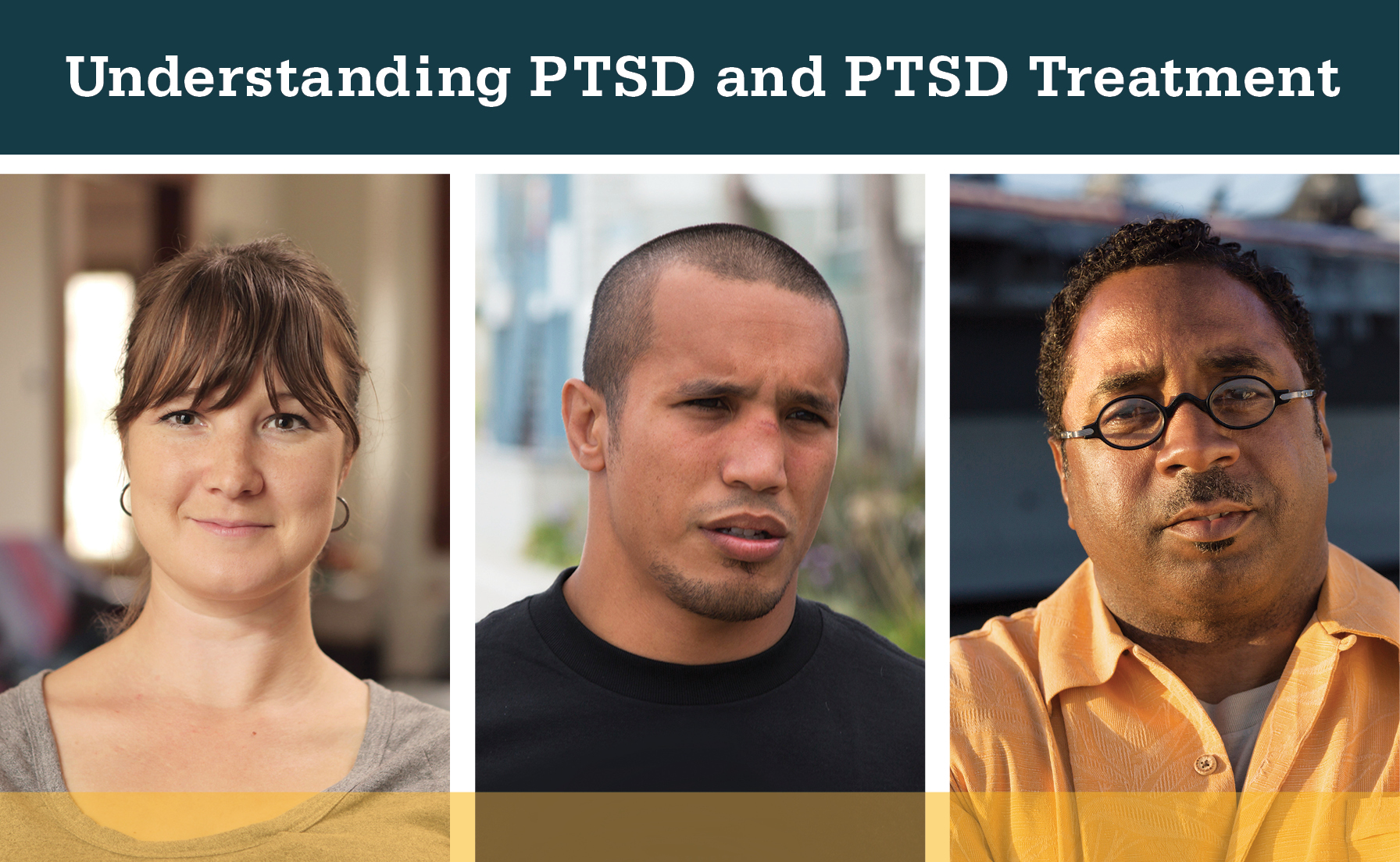PTSD Treatment Basics
“Treatment works. Treatment can take you to a place in your life where you thought you'd never be again.”
Yvonne Grissett
U.S. Army, 1982-1986

PTSD Treatment Basics
Available en Español
PTSD treatment works. Those who have gone through trauma can learn to feel safe in the world and cope with stress. There are several helpful treatments, so you have options. There is no one treatment that is right for everyone. Working with your health care provider, you can decide together which is best for you based on benefits, risks, side effects and other preferences.
Talk Therapies
Studies show that certain talk therapies (psychotherapies) work best. The talk therapies with the most research support are trauma-focused. "Trauma-focused" means that the treatment focuses on the traumatic event and what it means to you. The talk therapies that work best are: Cognitive Processing Therapy (CPT), Eye Movement Desensitization and Reprocessing (EMDR), and Prolonged Exposure (PE).
In these talk therapies, you'll learn ways to work through your trauma, by visualizing, talking or thinking about the traumatic event until it becomes less upsetting. Or you will focus on changing unhelpful beliefs about the trauma or since the trauma happened. These talk therapies usually last about 8-16 sessions. There are other options that have less research support but may be good options for you. Learn more about Talk Therapies for PTSD.
Medication
There are medications that are helpful for treating PTSD symptoms. Your best options are those with the most evidence: paroxetine, sertraline, and venlafaxine. Over time, you will work with your provider to check on your response to the medication, discuss side effects, and change the dose, if needed. The benefits of medications take time to work and end after you stop taking them. Research is ongoing to learn about medication-assisted therapy that may help more people with PTSD have a better response to treatment. And there are some medications that are not helpful for PTSD. Learn more about Medications for PTSD.
Other Approaches
Practices that support whole person health may be used with conventional treatments for mental health care, including for PTSD. These "complementary" approaches may be integrated into your treatment plan. Learn about Complementary and Integrative Health (CIH) and PTSD for practices that support evidence-based PTSD treatment and well-being.
Getting Started and Checking In
The articles below give basic information about how to get started with treatment and how to know if your treatment is working for you.
- Why Get Treatment?
Deciding to get help and taking the steps to start can be hard. Learn why getting help for your symptoms is the best thing you can do to get your life back on track. - Choosing a Treatment
There are several effective PTSD treatments. This means you have options. Learn how you can work with your provider to choose the best treatment for you. - Types of Providers
Many types of professionals provide evidence-based talk therapy and medication to people who go through trauma. Learn about the training and education of these mental health providers. - Signs of Good PTSD Care
In the best cases, people see PTSD symptoms get better while in treatment. But some people may not feel satisfied or feel they don't see progress. Learn 4 signs of quality PTSD care and how you can be an active player in your treatment.
Visit our Get Help section to learn how to find help in a crisis, locate a provider, get care for Veterans and access self-help and coping information and tools to manage stress.
You May Also Be Interested In


























